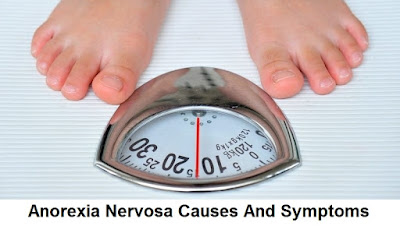Anorexia nervosa is a serious eating disorder and a mental disorder. People suffering from anorexia have problems with food and nutrition. They are extremely aware of their weight and try to be as thin as possible or to stay. Anorexia patients eat as little as possible, even when it means that they are malnourished and are at risk of life.
How often does anorexia occur?
Although anorexia is not very common, it remains the main cause of death due to mental problems. Anorexia is most prevalent among women and girls: 1 in 200 women suffer from an eating disorder. The first symptoms usually develop in the teen years. The average age of the phenomenon is 15 years. Nevertheless, the condition can develop at any age, even in childhood. Researchers are also worried about the increasing number of men who are struggling with anorexia.
Signs and symptoms of anorexia nervosa
People who suffer from anorexia are extremely aware of their weight for the following reasons:
- they think they are too fat
- to be scared to get fat
- to be skinny
Even when there is malnutrition, anorexia leads to the desire to lose even more weight. Although people with anorexia try to avoid food, they are obsessed with dieting and losing weight. For example, they can obsessively count the number of calories from a certain dish without having the intention to eat it.
In some cases, people with an eating disorder (bulimia) eat a huge amount for a very short period and then lose weight again by eating extremely diets. This can be done by surrendering after eating or by using laxatives. The latter are medicines that empty the stomach. In normal use laxatives are administered in case of constipation problems.
The symptoms of anorexia develop gradually (usually in puberty), but quickly get out of hand.
What causes anorexia nervosa ?
The cause of anorexia in unprecedented. It is generally assumed that anorexia is the result of certain biological, psychological and environmental factors. Anorexia and malnutrition cause serious health problems, such as:
- osteoporosis (or the weakening of the bones)
- kidney disease
- heart attack and cardiac arrhythmia
Anorexia nervosa effects
Most people with anorexia are not aware of their condition. Self-denial is the biggest pitfall in anorexia. Anorexia patients refuse to recognize or realize that they are suffering from an eating disorder. Treatment therefore includes intensive therapy and nutritional advice.
How often does anorexia occur?
Although anorexia is not very common, it remains the main cause of death due to mental problems. Anorexia is most prevalent among women and girls: 1 in 200 women suffer from an eating disorder. The first symptoms usually develop in the teen years. The average age of the phenomenon is 15 years. Nevertheless, the condition can develop at any age, even in childhood. Researchers are also worried about the increasing number of men who are struggling with anorexia.
Signs and symptoms of anorexia nervosa
People who suffer from anorexia are extremely aware of their weight for the following reasons:
- they think they are too fat
- to be scared to get fat
- to be skinny
Even when there is malnutrition, anorexia leads to the desire to lose even more weight. Although people with anorexia try to avoid food, they are obsessed with dieting and losing weight. For example, they can obsessively count the number of calories from a certain dish without having the intention to eat it.
In some cases, people with an eating disorder (bulimia) eat a huge amount for a very short period and then lose weight again by eating extremely diets. This can be done by surrendering after eating or by using laxatives. The latter are medicines that empty the stomach. In normal use laxatives are administered in case of constipation problems.
The symptoms of anorexia develop gradually (usually in puberty), but quickly get out of hand.
What causes anorexia nervosa ?
The cause of anorexia in unprecedented. It is generally assumed that anorexia is the result of certain biological, psychological and environmental factors. Anorexia and malnutrition cause serious health problems, such as:
- osteoporosis (or the weakening of the bones)
- kidney disease
- heart attack and cardiac arrhythmia
Anorexia nervosa effects
Most people with anorexia are not aware of their condition. Self-denial is the biggest pitfall in anorexia. Anorexia patients refuse to recognize or realize that they are suffering from an eating disorder. Treatment therefore includes intensive therapy and nutritional advice.

